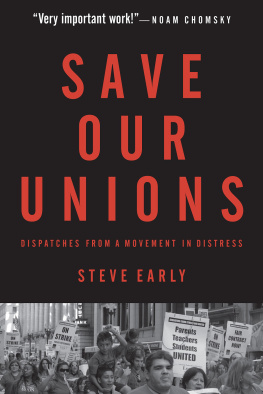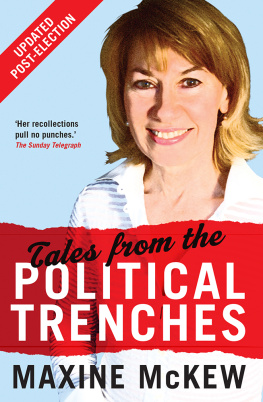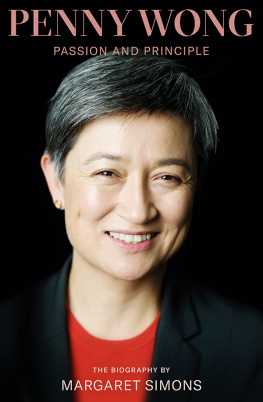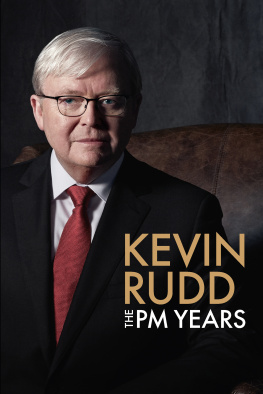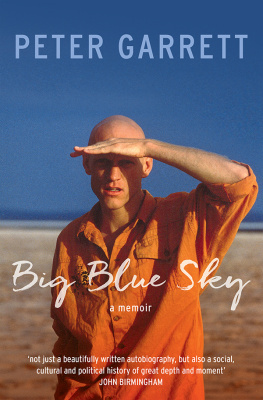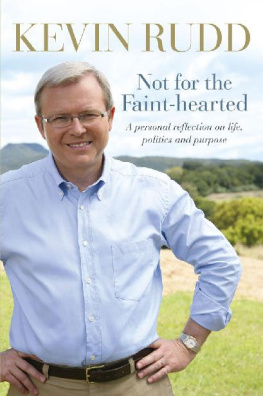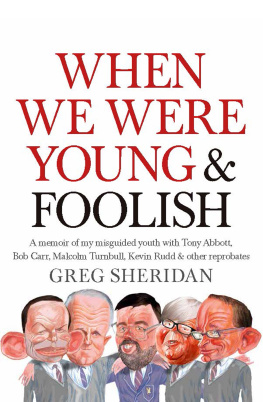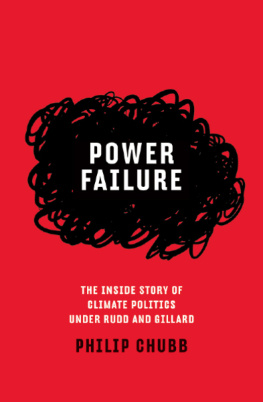
Greg Combet is well known for his roles as the leader of the ACTU and as a Labor government minister. Less well known is that he grew up on a winery in Rooty Hill, worked as a coal miner and has a life-long passion for Gouldian finches. Combet is a proven leader and crisis manager, a veteran of some of Australias largest industrial disputes, a fighter for social justice. Following two terms in parliament during which he had carriage of climate change policy, Combet is now pursuing a career in the superannuation industry and the private sector. He was awarded a Member of the Order of Australia in 2006 for his role in securing compensation for James Hardie asbestos victims. He lives in Sydney with his partner Juanita Phillips and is currently designing his latest aviary.
Mark Davis spent more than twenty years as a journalist covering industrial relations, transport, economics and politics for The Age, The Australian Financial Review and The Sydney Morning Herald. He was a deputy editor of the AFR and a federal vice-president and industrial officer for the Media Entertainment and Arts Alliance. He has known Greg Combet since 1988. Davis was Combets media adviser during the negotiation and implementation of the Gillard governments clean energy reforms to tackle climate change.
THE FIGHTS OF MY LIFE
GREG
COMBET
WITH MARK DAVIS
MELBOURNE UNIVERSITY PRESS
An imprint of Melbourne University Publishing Limited
1115 Argyle Place South, Carlton, Victoria 3053, Australia
www.mup.com.au
First published 2014
Text Greg Combet and Mark Davis, 2014
Design and typography Melbourne University Publishing Limited, 2014
This book is copyright. Apart from any use permitted under the Copyright Act 1968 and subsequent amendments, no part may be reproduced, stored in a retrieval system or transmitted by any means or process whatsoever without the prior written permission of the publishers.
Every attempt has been made to locate the copyright holders for material quoted in this book. Any person or organisation that may have been overlooked or misattributed may contact the publisher.
Copy edited by Joanne Holliman
Cover design by Philip Campbell Designs
Typeset by Megan Ellis
Printed in Australia by McPhersons Printing Group
National Library of Australia Cataloguing-in-Publication entry
Combet, Greg, author.
The fights of my life/Greg Combet with Mark Davis.
9780522866179 (paperback)
9780522866186 (ebook)
Includes index.
Combet, Greg.
Australian Labor PartyOfficials and employees.
PoliticiansAustraliaBiography.
Labor unionsOfficials and employeesBiography.
Politics, PracticalAustralia.
AustraliaPolitics and government21st century.
Davis, Mark, author.
324.29407
CONTENTS
For my daughter Anna,
who has been present throughout
all the major events in my working life.
ACKNOWLEDGEMENTS
Louise Adler from Melbourne University Publishing had been badgering me for some time to write a book. Despite my involvement in public life I prefer to be a private person, and I resisted Louises approaches. Books written by serving or aspiring politicians tend to be statements of ambition, something I wished to avoid, and I also apprehended something inherently conceited in chronicling events in my own life.
When I resigned from parliament in 2013 Louise was back again. After mulling it over I eventually agreed to do the book. I felt it would help me close the door on the time I have spent in high-profile public roles in the union movement and in politics. I have also written in the hope that it might provide insight into the labour movement, and encourage others to become involved. I am grateful to Louise, and also Sally Heath at MUP, for encouraging and cajoling and making many helpful suggestions on the text.
The book is a memoir of the major events in my working life. I deal only superficially with my personal life but, having devoted a lot to political activism, I owe much to those who have given me their love, support and encouragement. I have been fortunate to share my life and experiences at different stages with wonderful women, and to them, and to all of my family, friends and work colleagues over the years, I am sincerely and deeply grateful.
To my co-author Mark Davis, thank you for your determined, brilliant work and for enduring my cathartic experience. It has been an immensely rewarding collaboration.
Thanks also to Juanita Phillips and Greg Withers, who provided thoughtful advice, and to my mother Aida Wise, my sister Jennifer Combet, Josh Bornstein, Pat Conroy, Petra Hilsen, Richard Keddie, Peter Nicholas and Leon Zwier, who each offered comments on parts of the book.
And finally, to my daughter Anna. Growing up with my work has been far from easy, involving many sacrifices. I hope this book helps to explain where I was and what I was doing when I was away in body or mind.
1
THE END
A lone, I opened the heavy soundproof door to the empty Cabinet Room. I wanted one last look around.
I felt reconciled to the changes I was confronting. My time as a Cabinet minister would end within hours, my time as a member of parliament was almost over, and the Labor Government, of which I was a member, faced certain electoral defeat.
Like many of my ministerial colleagues, I had spent so many hours, so many long days and long nights, in that windowless room. My preparations for Cabinet meetings often started on Sundays with as many as ten submissions, some of about eighty to a hundred pages each. On Monday nights, dinner was provided in an area outside the Cabinet Room before we started the meeting at 6.45 p.m. There would be no advisors present. Cabinet ministers were rightly expected to have done the work beforehand. We needed to be able to make our arguments and defend our positions on our own.
This room is where I had thrashed out the contentious carbon pricing policy that had so dominated recent politics. It is where the decisions that shape our nation are debated and decided. It is a room that is home to power in our Australian democracy. It truly is an inner sanctum: a still, silent chamber in the heart of Parliament House, situated on the land axis that Walter Burley Griffin had plotted on the bush landscape when he planned the nations capital.
I have always liked the Cabinet Room ceiling the most. In the middle it is laminated with a beautiful, intricate timber mosaic depicting the Australian bush. Gazing up during some idle moments in a meeting, I liked to spot the cicadas among the eucalypt leaves.
The first time I visited this room was in 1988, as a young union official with the Waterside Workers Federation. It was a meeting with Prime Minister Bob Hawke to discuss waterfront restructuring, when Parliament House was new, freshly commissioned. Bob showed us the little buttons under the lip of the huge, oval-shaped table, located directly below a small, square, white timber inlay on the table surface. In those days, if you pressed a button an attendant would emerge through a door with a cappuccino in hand. Bob thought it was a hoot, and so did we. We all pressed the nearest button. Pretty soon Tas Bull, John Coombs and the rest of the hard, tough wharfie union officials were sipping cappuccinos while we debated waterfront work practices with the Prime Minister.


